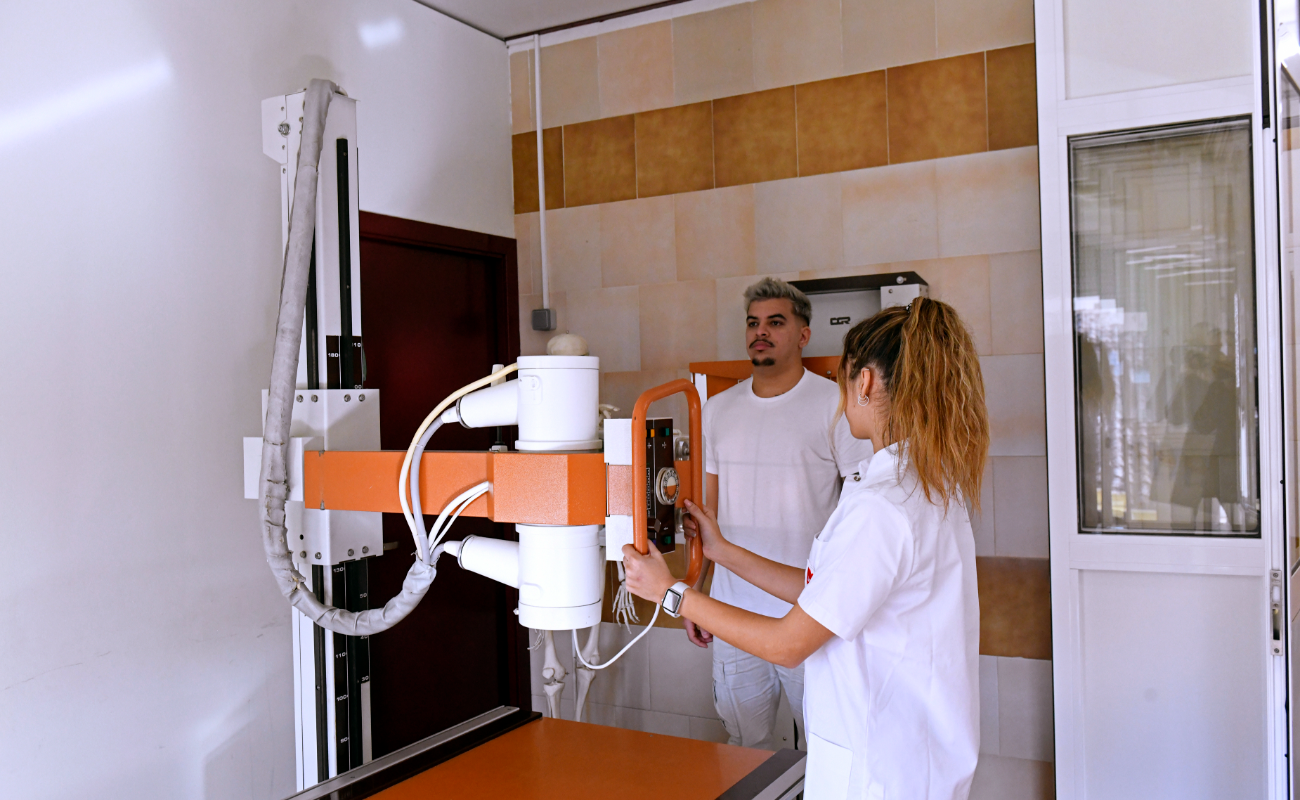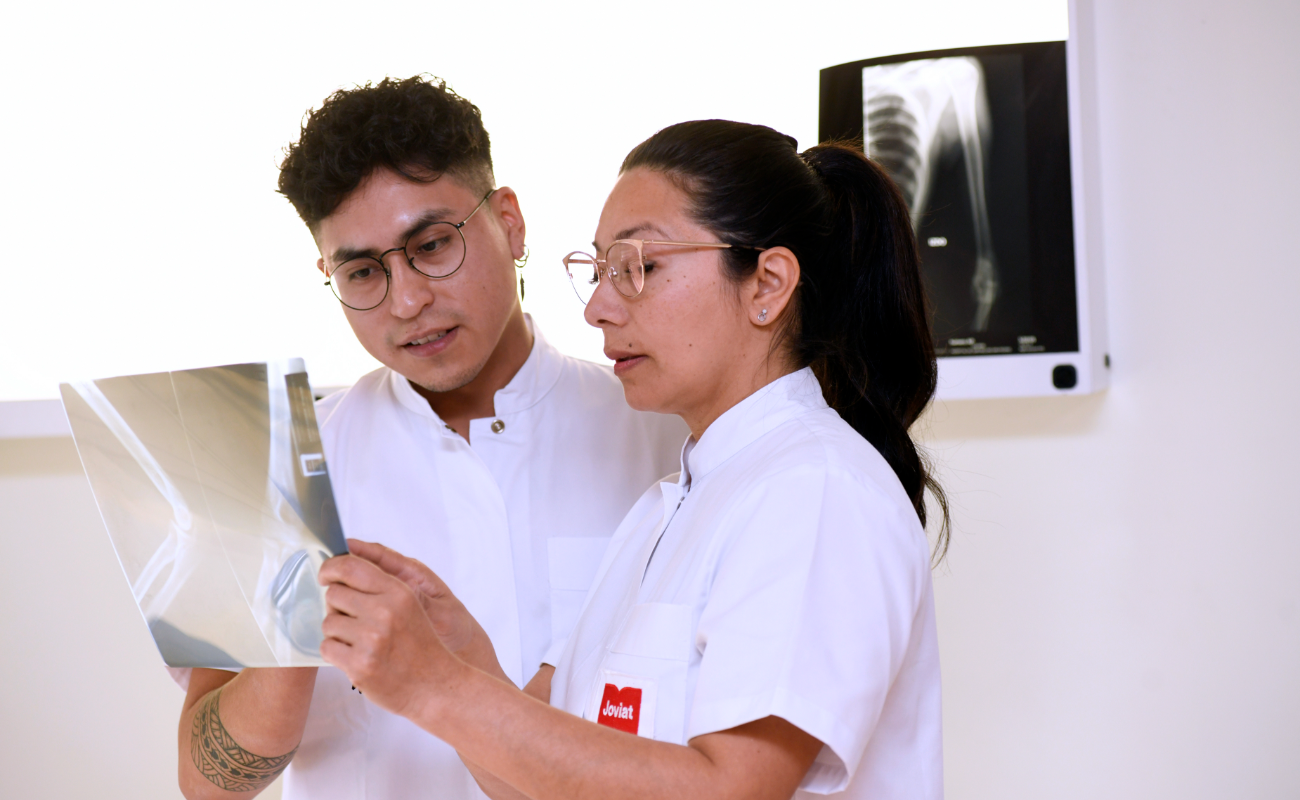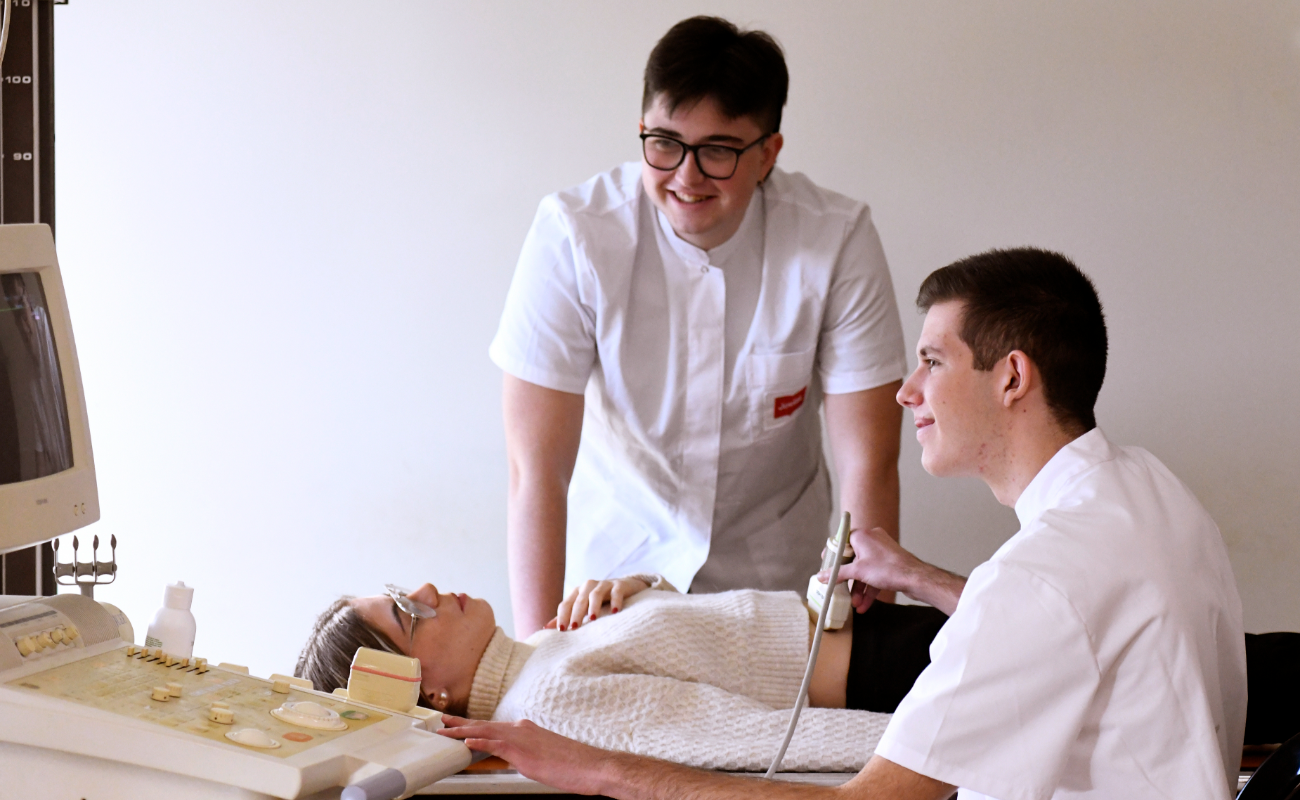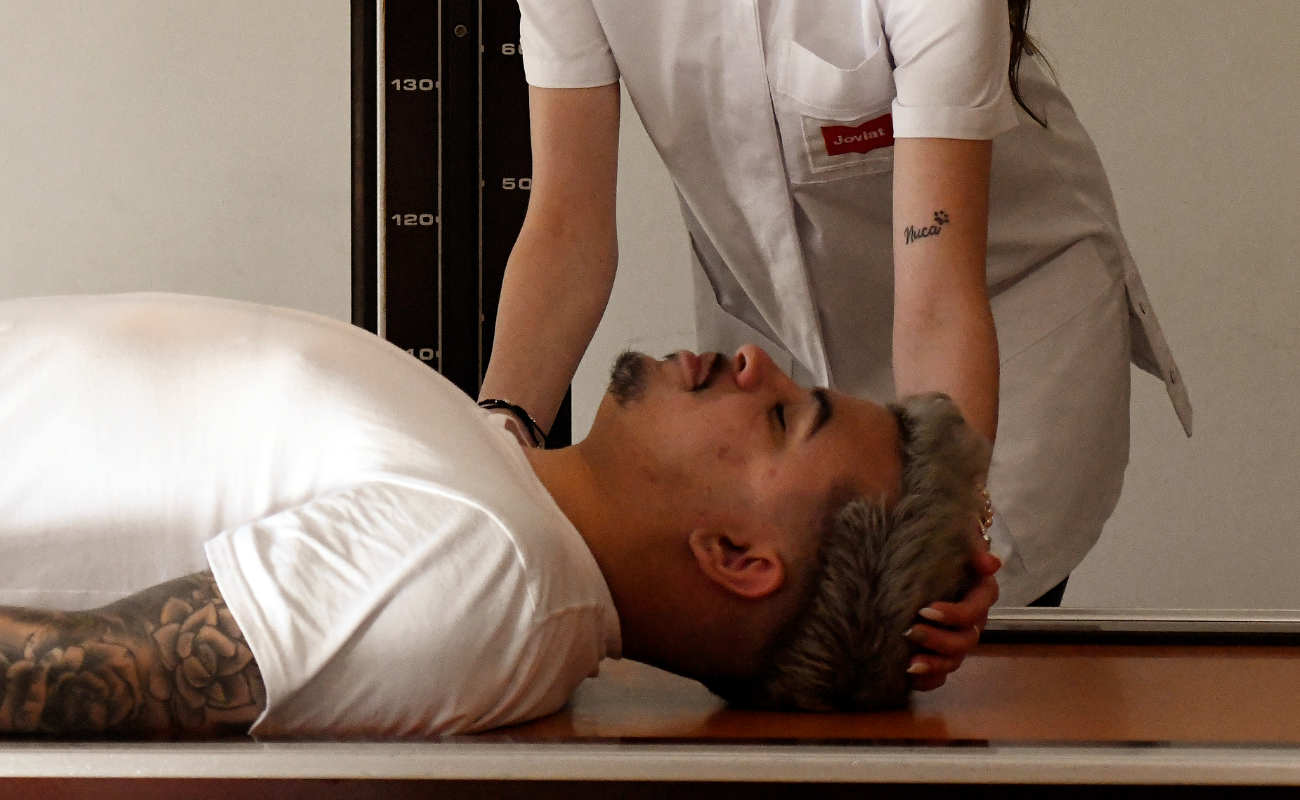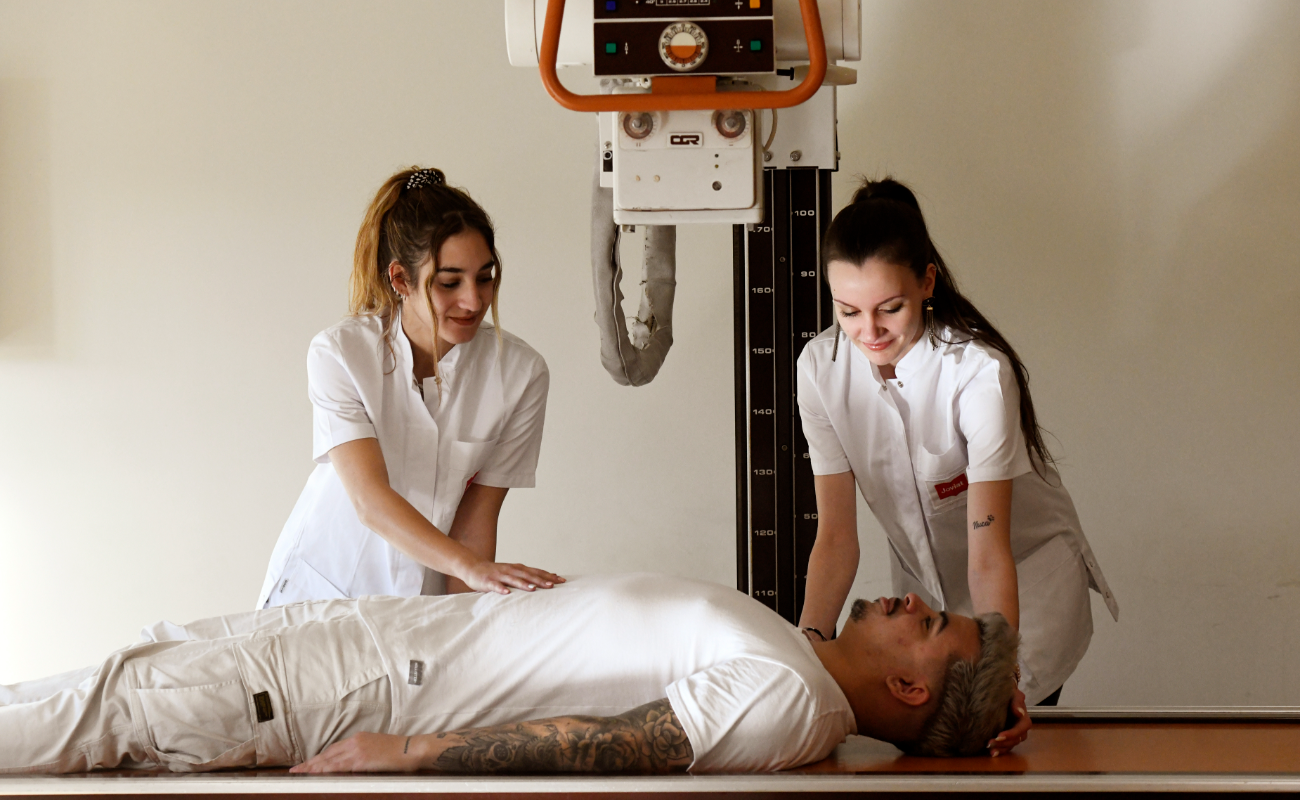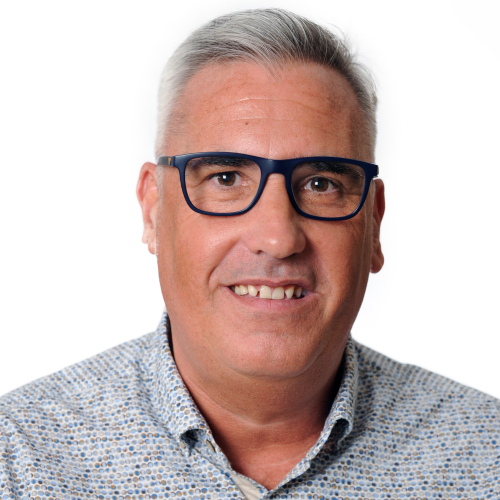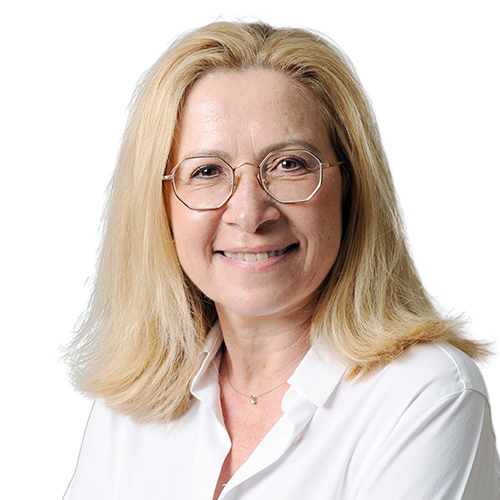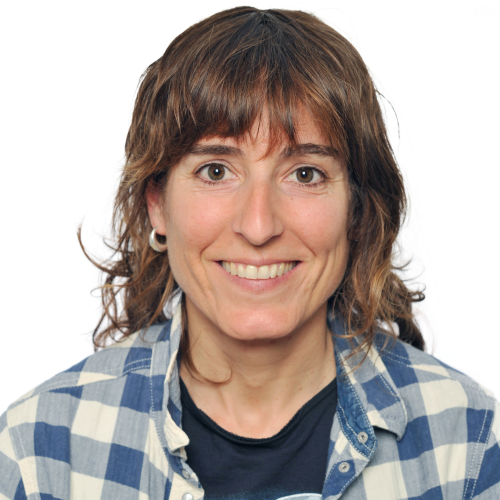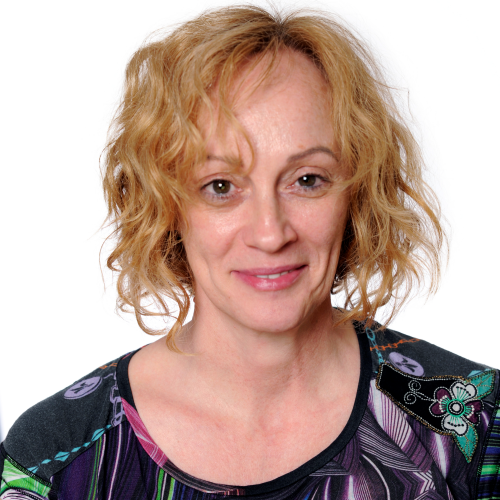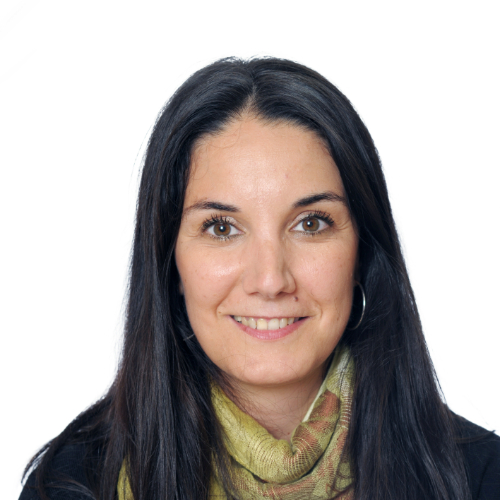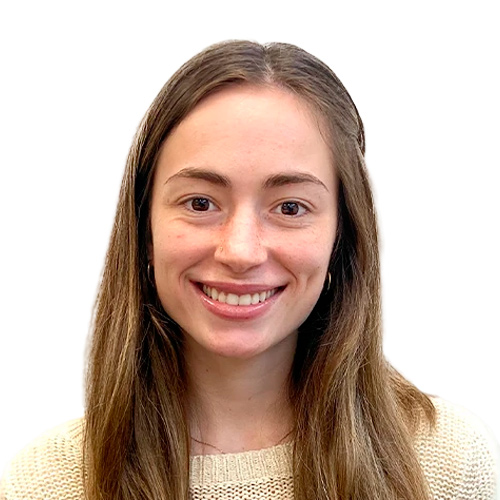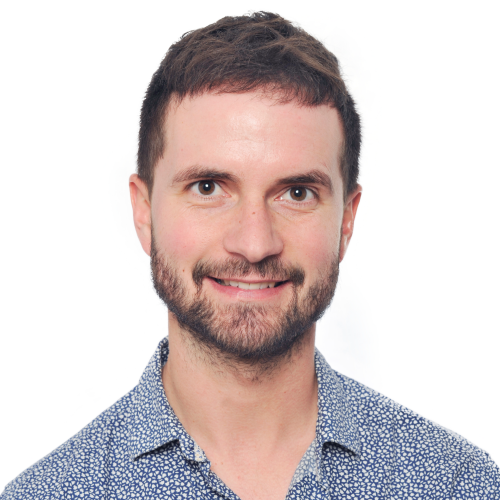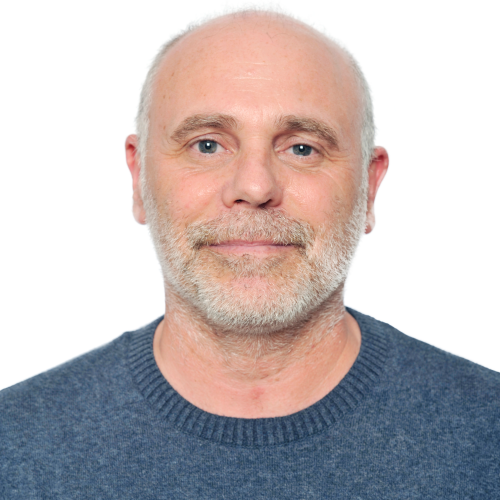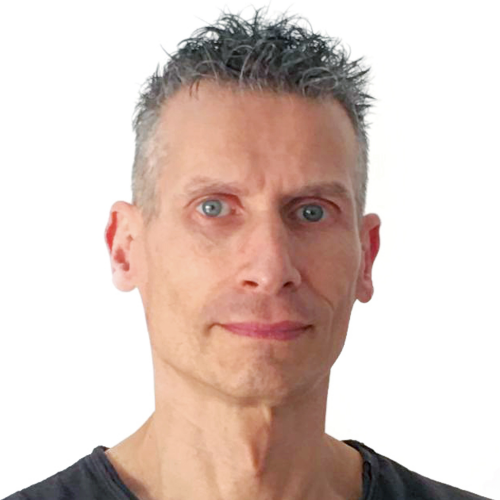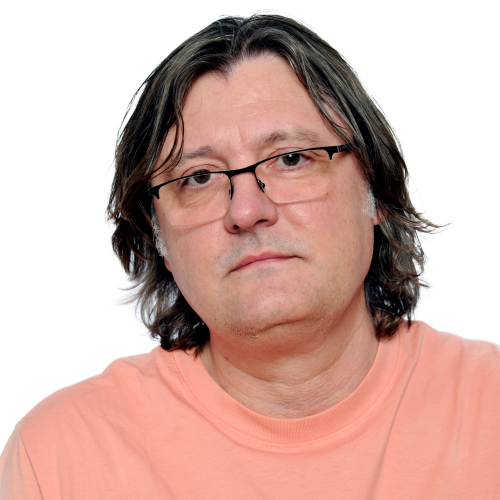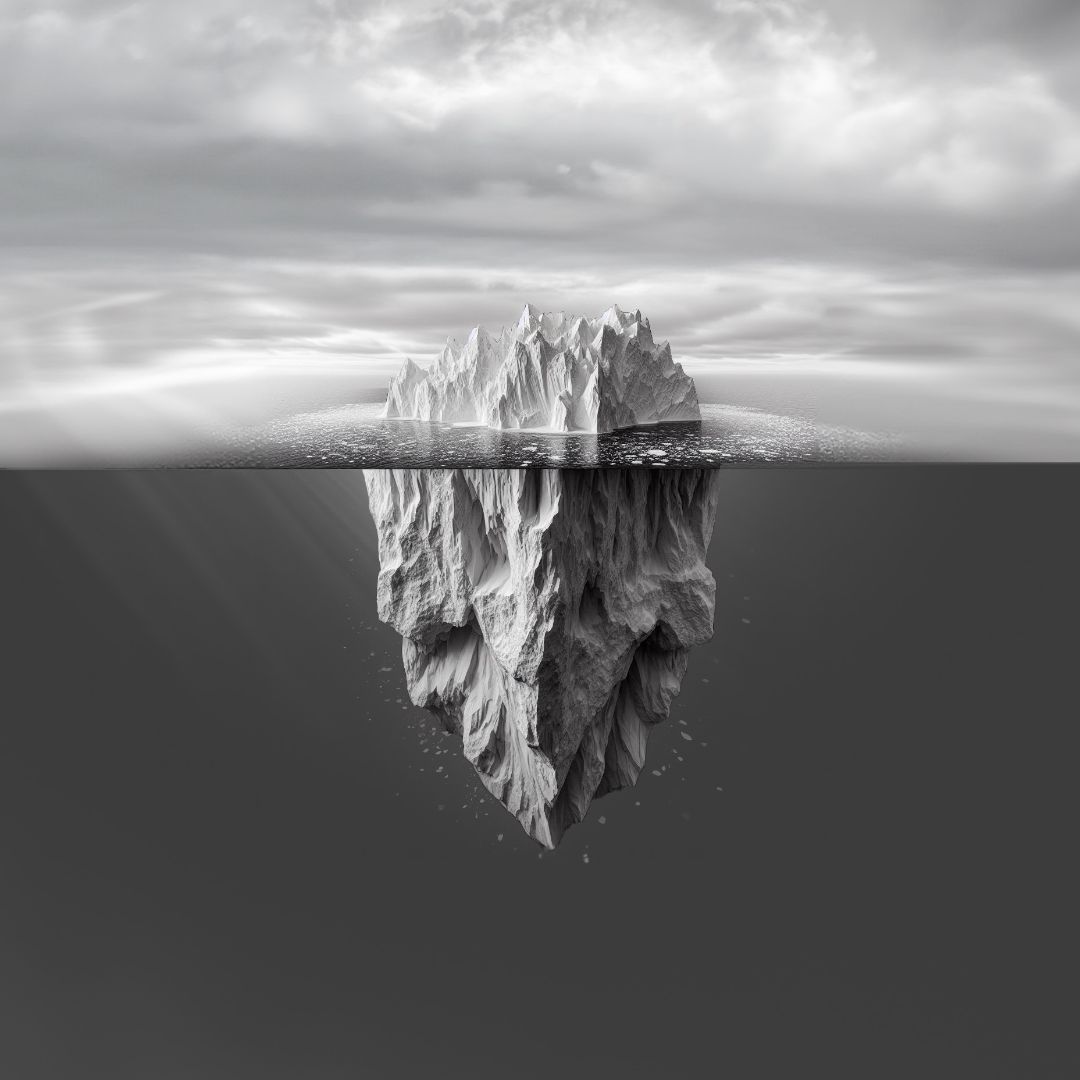| Name: | Diagnostic Imaging and Nuclear Medicine |
|---|---|
| Level: | Higher Vocational Training |
| Duration of the training cycle: | 2,000 hours |
| Training in the educational center: | 1,419 hours |
| Training in workplaces: | 581 hours |
Joviat’s Advanced Training Course in Diagnostic Imaging and Nuclear Medicine , recognized for its innovation and excellence in 2022, offers comprehensive training for professionals who aspire to specialize in the field of medical imaging. With professional teachers active in prestigious medical centers, the course combines theory with intensive practice, including simulations of radiological tests, theoretical and practical ultrasound classes, visits to hospital centers, and training in CT.
The general competence of this degree allows obtaining graphic records of the human body for diagnostic or therapeutic purposes, using diagnostic imaging and nuclear medicine equipment , and applying radiation protection protocols. With 2,000 hours of training and 581 hours of FCT, students prepare for a career as senior diagnostic imaging technicians, specialists in radiodiagnostics and nuclear medicine, among other professional opportunities.
Schedules

Afternoon
From Monday to Friday in the afternoon
Curriculum
Project work
Theoretical and practical ultrasound classes at UMANRESA
These sessions combine theory with direct practice, allowing students to understand the fundamentals of ultrasound , a key diagnostic tool in the healthcare field. Held at UMANRESA, an institution recognized for its excellence in healthcare training, students learn to operate ultrasound equipment, interpret images and understand its clinical applications in various healthcare contexts.
Theoretical and practical classes of TAC
Medical Institute for Imaging (IMI): The sessions here focus on Computed Axial Tomography (CAT) and provide a deep understanding of this imaging technology. Students learn about the technical principles of CAT, as well as its applications in medical diagnosis.
Saint Joseph Clinic
In addition to the IMI, the Clínica Sant Josep serves as another environment for hands-on learning about CT. These experiences prepare students for the management and interpretation of diagnostic images, essential in today’s medical practice.
Visits to Hospital Centers and the Dosimetry Center of Barcelona
Scheduled visits to hospital centers provide students with a glimpse into the real working environment in the healthcare sector, including the opportunity to see first-hand how documentation and diagnostic images are managed. The visit to the Barcelona Dosimetry Center, specializing in the measurement and analysis of radiation doses, offers a unique perspective on the importance of radiological safety and patient protection.
DEA – Basic Life Support and Defibrillation Certificate
Obtaining the Basic Life Support and Defibrillation Certificate issued by the Catalan Resuscitation Council and the European Resuscitation Council is a crucial part of the training. This certificate qualifies students to perform resuscitation procedures and use automated external defibrillators (AEDs), vital skills in providing medical emergency care.

